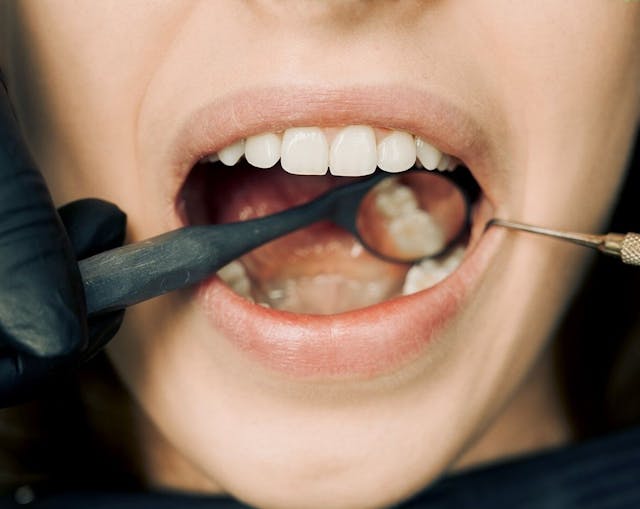Maintaining good oral health goes beyond just brushing your teeth. Although brushing is essential, you can also include other practices in your regimen to enhance your overall dental health and oral hygiene. This comprehensive guide will explore five expert-recommended strategies that can enhance your oral health, ensuring a brighter smile and healthier mouth for years to come. These suggestions, which range from mouthwash to tongue scraping, will enable you to take extra care of your teeth and gums.
Regular Dental Checkups and Cleanings:
One of the most important steps you can take to improve your oral health is to schedule regular dental checkups and cleanings with your dentist. Professional cleanings are necessary to remove plaque and tartar accumulation, which can cause gum disease and tooth damage even if you brush and floss regularly at home. Your dentist will inspect your teeth and gums for cavities, gum disease, and other oral health problems during your dental appointment. By identifying and treating dental issues early on, you can keep your oral health at its best and stop problems from getting worse.
Healthy Diet and Nutrition:
Your diet plays a significant role in your oral health. A balanced diet full of whole grains, fruits, vegetables, lean meats, and other nutrients is necessary to maintain healthy gums and teeth. On the other hand, foods rich in sugar and carbs can exacerbate gum disease and tooth decay by fostering bad oral bacteria. Reduce the amount of sugary snacks and drinks you consume and replace them with healthy alternatives like dairy products, fresh fruits, and vegetables. In addition to lowering the risk of cavities and gum disease, drinking lots of water throughout the day helps wash away food particles and bacteria. Furthermore, chewing sugar-free gum after a meal increases saliva production, which guards dental enamel by neutralizing acids.
Proper Brushing Technique:
While brushing your teeth is essential for maintaining good oral hygiene, using the proper technique is equally important. Make sure to thoroughly clean the front, back, and chewing surfaces of your teeth when you brush them twice a day for two minutes each time. Employ a toothbrush with soft bristles and fluoride toothpaste to delicately eliminate plaque and bacteria without endangering your gums or tooth enamel. To thoroughly clean your teeth, hold your toothbrush at a 45-degree angle to your gums and make quick, circular movements.
Remember to brush your tongue as well, as bacteria can build up on its surface and cause issues with your mouth’s health, including foul breath. Consider using a tongue scraper to more successfully remove waste and bacteria from your tongue.
Flossing and Interdental Cleaning:
In addition to brushing, flossing, and interdental cleaning are essential for removing plaque and food particles from between your teeth and along the gumline. By eliminating plaque from places your toothbrush can’t reach, flossing at least once a day helps prevent cavities and gum disease. Be careful not to damage or push the dental floss into your gums when cleaning in between your teeth with a piece of floss or an interdental cleaner. For increased convenience and efficacy, think about utilizing interdental brushes, water flossers, or dental picks.
By removing plaque and bacteria from difficult-to-reach places, interdental cleaning lowers your risk of dental issues and promotes healthier teeth and gums. It is important to include interdental cleaning in your regular oral hygiene regimen.
Using Mouthwash:
Mouthwash is an additional tool you can use to enhance your oral hygiene routine and freshen your breath. Antiseptic components in mouthwash eliminate bacteria and reduce plaque accumulation, preventing gum disease and cavities. Including mouthwash in your regular oral hygiene regimen can boost your self-confidence and offer further defense against oral health issues. For optimal efficacy and safety, look for a mouthwash that is fluoridated and free of alcohol. After brushing and flossing, rinse your mouth with mouthwash for 30 to 60 seconds, being sure to swish it about your mouth to cover all surfaces.
Conclusion:
Improving your oral health requires more than just brushing your teeth—it’s about adopting a comprehensive approach that encompasses regular dental checkups, a healthy diet, proper brushing and flossing techniques, and the use of additional tools like mouthwash and tongue scrapers. These five professional-recommended techniques will help you maintain better oral health for years to come, improve the condition of your teeth and gums, and stave off cavities and gum disease.


